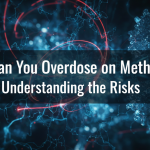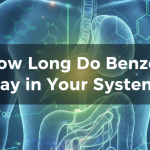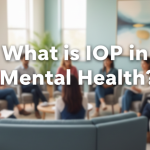From the beginning, individuals are often taught the importance of making healthy, positive choices. However, as they grow, the influence of family tends to decrease, and the opinions of friends, colleagues, and social circles become more impactful. Peer pressure can begin to influence a wide range of actions, behaviors, and thoughts, including workplace performance, lifestyle habits, substance use, and mental health.
What is Peer Pressure?
Peer pressure is external or internal pressure to behave in certain ways. It can be positive or negative and impacts individuals throughout their lives, not just during adulthood. While peer influence often begins at an early age, its effects on adults are significant and multifaceted.
In adulthood, peer pressure may manifest in the workplace, social circles, or family settings. Adults often face pressure to conform to professional norms, social expectations, or lifestyle trends, which can affect their decisions and behaviors. For instance, adults may feel compelled to engage in activities like excessive drinking at social events, spending beyond their means to keep up with peers, or adopting unhealthy habits to fit into certain groups. Conversely, positive peer pressure in adulthood can encourage personal growth, career advancement, and healthier lifestyles, as individuals are inspired by the achievements and values of their peers.
How Normal is Peer Pressure?
Adult peer pressure is a complex topic, and it’s not just common—it’s inevitable. As individuals navigate adulthood, they often prioritize social connections, whether in the workplace, in personal relationships, or even through social media. The influence of peers during this stage of life remains incredibly powerful.
Interestingly, while adults may feel they’ve reached full maturity, their experiences and social environments continue to shape their decision-making. You might be surprised to learn that peer pressure takes on various forms in adulthood. While we often associate peer pressure with negative connotations, it can also drive positive change, such as fostering healthy habits or encouraging personal growth.
The 6 Types of Peer Pressure
Adults may experience several different types of peer pressure. They include
[accordion]
[accordionblock title=”Positive Peer Pressure”]
It’s often overlooked, but peers can have a profound positive influence on each other throughout adulthood. This includes:
- Stronger Bonds: Shared experiences, mutual support, and genuine friendship among peers foster lasting and meaningful connections.
- Enhanced Coping Mechanisms: Positive peer influence can encourage healthy coping strategies, such as pursuing fitness, engaging in hobbies, or seeking support from others during challenging times.
- Role Models: Peers often serve as positive examples, inspiring others to strive for personal and professional growth, maintain healthy habits, and demonstrate integrity and kindness.
- Valuable Feedback: Friends provide honest feedback and offer different perspectives, helping individuals make informed decisions and navigate complex situations.
- Consistent Support: Peers offer encouragement, celebrate successes, and provide a shoulder to lean on during difficult times.
- Expanded Horizons: Peers introduce each other to new experiences, hobbies, and social circles, broadening their perspectives and enriching their lives.
[/accordionblock]
[accordionblock title=”Negative Peer Pressure”]
- Asking an adult to take part in behavior that is against their values or moral code is negative social pressure and it can steer them down an undesirable path. Adults observe the actions of others with stronger personalities and are placed in the position of conforming or distancing themselves. According to [insert relevant expert source, e.g., social psychologist, Dr. Gurinder Dabhia, the adult brain, while fully developed, can still be susceptible to certain cognitive biases. One such bias is the confirmation bias, which can lead them to overlook risks and engage in behaviors that might harm their health, such as excessive alcohol consumption, substance abuse, or neglecting their well-being.
- Adults may exhibit heightened sensitivity to social pressure and engage in impulsive, risky behavior, particularly within social settings, simply to maintain social connections and avoid rejection. This can manifest in various ways, such as succumbing to peer pressure to engage in risky financial decisions, overworking to the detriment of their health, or engaging in unhealthy competition.
[/accordionblock]
[accordionblock title=”Spoken Peer Pressure”]
Spoken peer pressure can occur when an individual or group directly asks or persuades another adult to engage in a particular action or behavior. If this pressure arises in a one-on-one situation, the influenced individual has a greater chance of adhering to their values and beliefs rather than succumbing to negative influence. However, the pressure to conform can be significantly stronger when the spoken influence takes place within a group setting.
[/accordionblock]
[accordionblock title=”Unspoken Peer Pressure”]
Peer pressure, whether implicit or explicit, can significantly influence individual choices. While this influence can be positive, it often presents challenges, particularly for adults still developing mature decision-making skills. The pressure to conform can lead to impulsive actions with potentially negative long-term consequences.
[/accordionblock]
[accordionblock title=”Direct Peer Pressure”]
Direct peer pressure occurs when individuals are explicitly urged to conform by others. This often involves immediate demands and public scrutiny, forcing individuals to make rapid decisions in socially charged situations. Such pressure can be particularly intense when competition for resources or social standing is present
[/accordionblock]
[accordionblock title=”Indirect Peer Pressure”]
Indirect peer pressure usually occurs from subtle or implied influences that may make a person feel as though they need to change something about themselves or their behavior. The results may be negative or positive but the method of pressure is subtle and not directly suggested. The same as direct pressure, it can and will result in the same negative or positive changes.
[/accordionblock]
[/accordion]
What are the Effects of Social Media on Peer Pressure?
People can have friendly and friendly-correcrive contacts and it can be the same of social media communication. Social media is always online, and this means that adults are able to receive the messages at any one time during the day. This means that it has a great possibility often being the source of luck and may even increase feelings of both positive and negative peer pressure.
One of the common misrepresentations on social media is when people post the “best” times of their lives, which creates a false sense of reality. This can cause an adult to compare the reality of their lives to the picture-perfect images of others’ lives and feel pressure to keep up. However, the absence of face-to-face contact may lead the customers to leave worthless or even abusive comments and posts freely as they would not directly offend someone. This is known as ‘trolling’ and it is a common from of negative peer pressure at this social media. There are various dangerous internet challenges which might harm an adult in one or another way and influence his or her health.
Who Are the Peers of Your Adults?

It has long been observed by social scientists that individuals tend to categorize themselves and others into recognized and labeled social groups. Adults, similarly, often segregate themselves into distinct social circles. An individual’s identification within a social group is shaped by their self-perception and how they are perceived by others.
They give names to their peer group types (as illustrated in popular movies). Group names that adults give themselves or each other suggest the groups’ lifestyle characteristics such as shared beliefs, interests in music and clothes, and preferences for certain activities.
Adults may identify with groups to develop their sense of identity and a positive self-concept, along with a feeling of independence from their parents.
Typical Categories
Studies suggest that adult peer groups are made of five general categories:
- Elites
- Athletes
- Academics
- Deviants
- Others
The study found that the Deviant group reported generally greater participation in drug use and other behavior problems. However, the Academics and Athletes showed the least participation in problem behaviors. Because of their lack of experience, adults are frequently not sure about the lifestyle decisions they should make and are likely to look for a place among a peer group by conforming to the group’s norms.
How Does Negative Peer Pressure Affect Mental Health?
The effects of negative peer pressure are typically related to influencing:
- Bullying behavior
- Drug use
- Drinking alcohol
- Negative body image
The effects of these behaviors can lower self-confidence, and self-esteem, and distance the adult from family and friends.
Research indicates that there is a direct, positive relationship between peer pressure and depression in adults. At its worst, depression can lead to suicidal thoughts, self-harm, and other harmful behaviors. It also states that peer pressure is a predictor of increased levels of stress, anxiety, and sleep problems.
Possible Signs Your Adult Is Being Affected by Peer Pressure
- Low attendance at school and/or missing classes during the day
- Behavior changes negatively around a certain group of friends
- Trying things that aren’t healthy like smoking, alcohol, etc.
- Showing risky or criminal behavior
- Poor school performance
- Using drugs or alcohol
- Bullying
7 Tips to Help Your Adult Avoid Negative Peer Pressure
Given the social pressures adults often face, strong communication within social circles is crucial. Open and honest dialogue can empower individuals to navigate challenging social situations effectively and make healthy choices.
- Create an environment of open communication from an early age. Be aware of opportunities to ask about the pressure they’ve seen or experienced and how they felt about it. Reassure them that you are available to listen if they need it.
- Relate your own experiences of peer pressure and how you handled them. Model healthy behaviors.
- Teach yourself how to establish boundaries and be assertive. Ask yourself what you might say in certain situations and practice saying no differently.
- Create a plan and a backup plan for situations where you feel pressured by others. Be sure you know it’s perfectly acceptable to make up an excuse if you aren’t sure how to respond. Help yourself think of creative ways to extricate yourself from an uncomfortable situation.
- You should attempt to meet your adult friends and their company if you have the chance to do so. You should guide your offspring to extend an invitation to his or her friends so that you can get more acquainted with them.
- Encourage yourself to choose positive relationships with friends who respect you and don’t unfairly pressure you.
- Help an adult be as independent as possible and help them learn to trust their instincts. Adult persons should be trained in decision-making and learn to follow instinct rather than depend on others.
Orlando Treatment Solutions for You and Your Adult
If you’re concerned about your mental health, Orlando Treatment Solutions offers specialized assistance. We can conduct a comprehensive evaluation of your needs and recommend one of our intensive outpatient programs. We can provide a regular intensive program or our higher level of care, a partial hospitalization program.
Our programs include individual, group, and family therapy because we understand that when one member of the family has an issue with substances or a mental health disorder, all members are affected.
The special adult treatment center will help you feel more comfortable expressing yourself and opening up about your issues with a group of peers. Research has shown that treatment is more effective when individuals feel that other people can understand their experiences–another example of the importance of peers. Contact us today before peer pressure has controlled your adult down the wrong path.







